What is Affiliate Marketing?
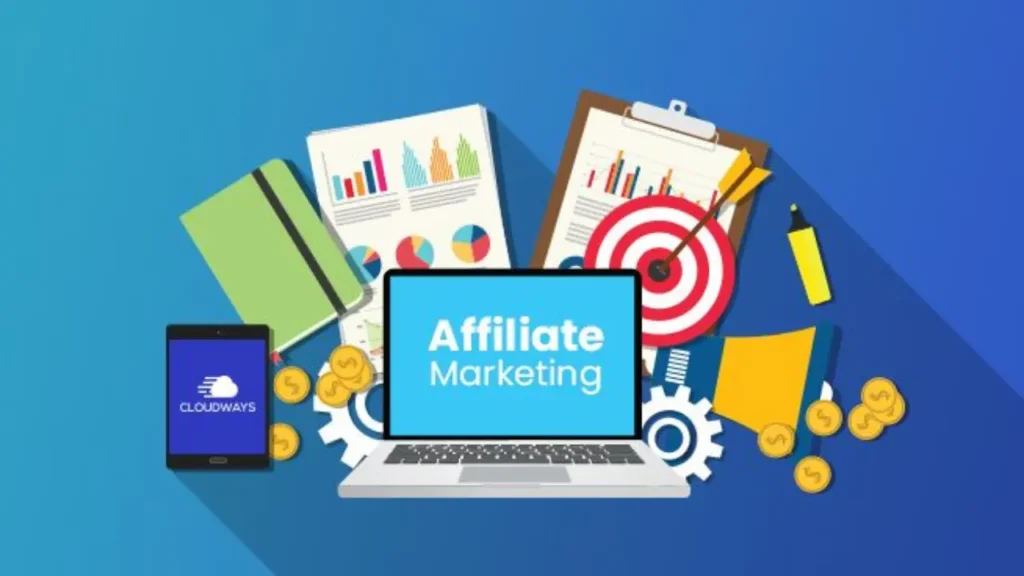
Affiliate marketing is one of the most effective ways for individuals and businesses to generate passive income online. It allows companies to expand their reach while enabling affiliates to earn commissions by promoting products or services. In this guide, we’ll explore what affiliate marketing is, how it works, the different types of affiliate marketing models, and strategies for success.
Affiliate marketing is a performance-based marketing strategy where businesses (merchants) reward individuals or entities (affiliates) for driving traffic, leads, or sales to their website through unique tracking links. This method is popular among bloggers, influencers, and content creators looking to monetize their platforms.
How Does Affiliate Marketing Work?
Affiliate marketing follows a simple process:
- Join an Affiliate Program: Affiliates sign up for an affiliate program, which provides them with unique tracking links.
- Promote Products or Services: Affiliates promote these links through websites, blogs, social media, email newsletters, or other channels.
- Generate Clicks and Sales: When a user clicks on an affiliate link and completes a purchase, the sale is tracked.
- Earn Commissions: The affiliate earns a commission based on the agreement with the merchant.
Benefits of Affiliate Marketing
For Affiliates:
- Passive Income Potential: Affiliates can earn commissions without actively managing inventory or services.
- Low Startup Costs: No need to create products or handle customer service.
- Flexibility: Affiliates can work from anywhere with an internet connection.
- Scalability: As affiliates grow their audience, their potential earnings increase.
For Businesses:
- Cost-Effective Marketing: Businesses only pay for successful conversions.
- Extended Reach: Affiliates help promote products to new audiences.
- Improved SEO: Backlinks from affiliate sites can boost search engine rankings.
- Data-Driven Performance: Companies can track affiliate success and optimize their marketing efforts accordingly.
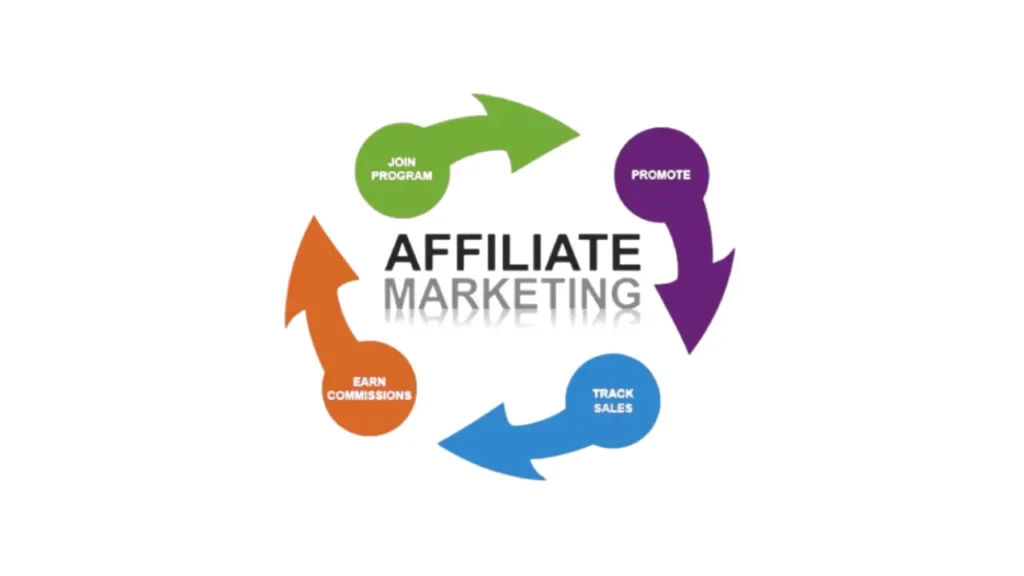
Different Types of Affiliate Marketing
1. Unattached Affiliate Marketing
- The affiliate has no direct connection to the product or brand and promotes it purely for commissions.
- Example: Running ads for products without personally using them.
- Related Affiliate Marketing
- The affiliate has some level of expertise or influence in the niche but hasn’t necessarily used the product.
- Example: A fitness blogger promoting protein supplements.
- Involved Affiliate Marketing
- The affiliate has personally used and tested the product and provides an authentic review.
- Example: A YouTuber reviewing and recommending a specific gadget.
How to Get Started with Affiliate Marketing
- Choose a Niche
Selecting a profitable and passion-driven niche increases the chances of success. Popular niches include:
- Health & Wellness
- Technology
- Finance
- Travel
- Fashion & Beauty
- Digital Marketing
- Personal Development
- Gaming
- Parenting
- Find Affiliate Programs
Some well-known affiliate networks include:
- Amazon Associates (e-commerce)
- Share A Sale (various industries)
- CJ Affiliate (enterprise brands)
- Click Bank (digital products)
- Rakuten Marketing (retail and finance)
- Impact Radius (premium brands)
- Flex Offers (variety of industries)
- Awin (global brands)
- Create Quality Content
Affiliates should focus on creating value-driven content like:
- Blog posts
- Product reviews
- Comparison articles
- Video tutorials
- Social media posts
- Case studies
- Podcasts featuring product discussions
- eBooks and downloadable guides
- Webinars
- Drive Traffic
Affiliates can generate traffic through:
- SEO (Search Engine Optimization): Optimizing content to rank on Google.
- Social Media Marketing: Promoting links on Instagram, YouTube, Twitter, and TikTok.
- Email Marketing: Sending newsletters with affiliate links.
- Paid Advertising: Running PPC campaigns on Google Ads and social media.
- Webinars and Online Courses: Educating audiences and recommending products.
- Reddit and Quora Marketing: Answering questions and subtly linking to affiliate content.
- Track Performance and Optimize
Using tools like Google Analytics, SEMrush, Ahrefs, and affiliate dashboards, affiliates can track clicks, conversions, and revenue. They should analyze which strategies work best and refine their approach accordingly.
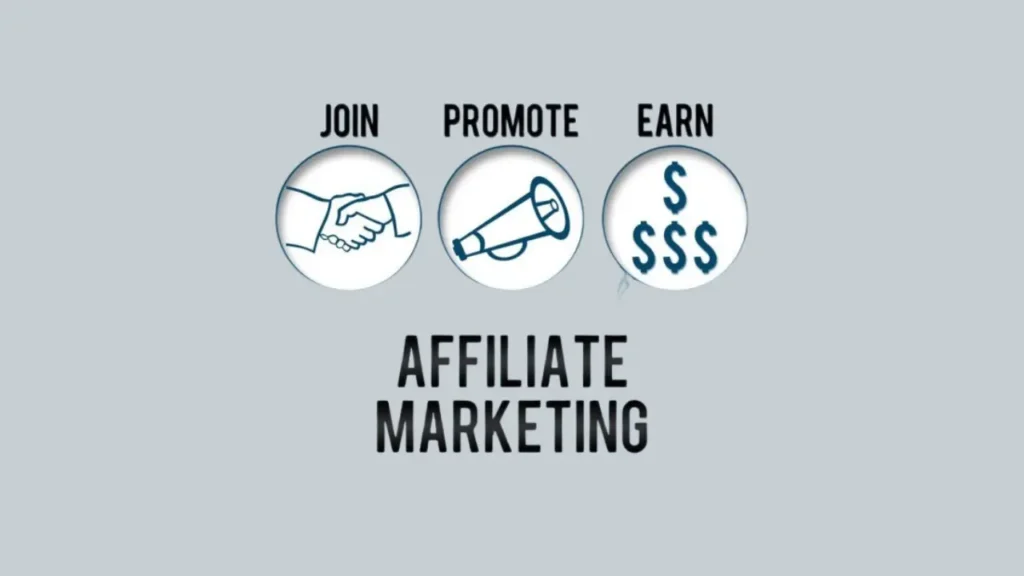
Case Studies in Affiliate Marketing Success
Case Study 1: Pat Flynn – Smart Passive Income
Pat Flynn is one of the most well-known figures in affiliate marketing. Through his blog “Smart Passive Income,” he shares insights on how to generate passive income through various strategies, including affiliate marketing. By creating high-quality content, building trust with his audience, and recommending products he genuinely believes in, Flynn earns six-figure monthly commissions.
Case Study 2: The Wire cutter (Acquired by The New York Times)
The Wire cutter started as a small product review site that focused on testing and recommending the best products in various categories. By providing in-depth reviews and comparisons, it generated substantial affiliate commissions. The success of The Wire cutter led to its acquisition by The New York Times for approximately $30 million.
Case Study 3: Michelle Schroeder-Gardner – Making Sense of Cents
Michelle Schroeder-Gardner runs “Making Sense of Cents,” a personal finance blog that generates over $50,000 per month in affiliate income. She focuses on financial products, blogging tools, and side hustle opportunities, providing genuine recommendations to her readers. Her success highlights the importance of trust, niche selection, and content quality.
Case Study 4: Best Reviews
Best Reviews is another affiliate site that grew into a multi-million-dollar business by publishing detailed product reviews. It partners with major retailers like Amazon and Walmart to earn commissions on recommended products. Best Reviews gained credibility through thorough research, expert recommendations, and an excellent user experience.
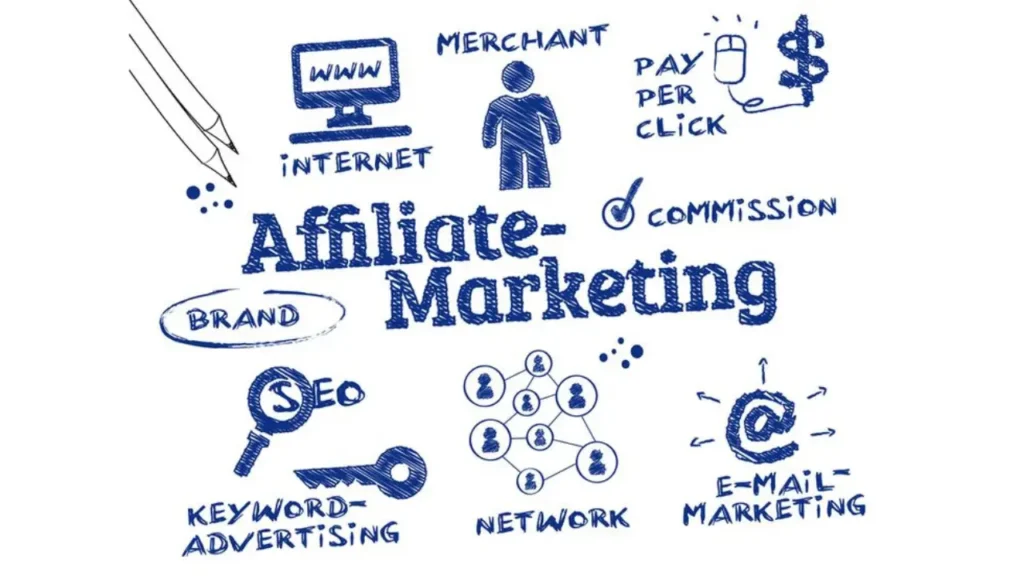
Case Study 5: Ryan Robinson – Blogging and Entrepreneurship
Ryan Robinson built his website “ryrob.com” as a resource for entrepreneurs and bloggers. By leveraging SEO, high-quality blog content, and strategic affiliate partnerships, he consistently earns thousands of dollars in affiliate commissions each month. His success demonstrates how valuable educational content can drive traffic and conversions.
Case Study 6: Authority Hacker
Authority Hacker is a website dedicated to teaching affiliate marketing. It demonstrates how strategic SEO, high-quality content, and diversified income streams can create a sustainable affiliate business.
Common Affiliate Marketing Strategies
- Content Marketing
Writing high-quality blog posts, listicles, and reviews can attract organic traffic.
- Coupon and Deals Sites
Many shoppers look for discounts before purchasing. Affiliates can leverage coupon codes to drive conversions.
- YouTube and Video Marketing
Video content builds trust. Product reviews, tutorials, and unboxing videos are highly effective.
- Influencer Partnerships
Influencers with loyal followings can promote products effectively through social media and personal recommendations.
- Email and Newsletter Marketing
Regularly sending curated content with affiliate links to an email list can drive consistent commissions.
- Webinars and Online Courses
Educating audiences through webinars and online courses can help affiliates sell high-ticket products.
- Comparison and Alternative Posts
Providing side-by-side comparisons of similar products helps consumers make informed choices and boosts affiliate earnings.
Common Affiliate Marketing Models:
- Pay-Per-Sale (PPS): Earn commission when someone makes a purchase.
- Pay-Per-Click (PPC): Earn commission based on traffic sent to the merchant’s website.
- Pay-Per-Lead (PPL): Earn commission when visitors complete an action, like signing up for a newsletter.

1. For Businesses (Merchants/Brands)
Affiliate marketing provides a powerful way to scale revenue without massive upfront investment.
1.1. Performance-Based & Low Risk
- Unlike traditional ads, where you pay for impressions or clicks, affiliate marketing ensures you only pay for actual sales or leads.
- This makes it a cost-effective strategy with minimal financial risk.
1.2. Expands Brand Reach & Visibility
- Affiliates promote your brand across multiple platforms—blogs, YouTube, social media, and email lists.
- This helps you tap into new audiences that you may not have reached otherwise.
1.3. Boosts SEO & Organic Traffic
- Many affiliates create high-quality content (blog posts, reviews, and guides) that generate backlinks to your site.
- This can improve search engine rankings and drive long-term organic traffic.
1.4. Leverages Influencer & Niche Marketing
- Affiliates are often niche experts or influencers with a loyal following who trust their recommendations.
- This means higher conversion rates compared to traditional advertising.
1.5. Scalable Growth Strategy
- Once you establish an affiliate program, you can scale without hiring more staff or spending extra on ads.
- The more affiliates join, the greater your revenue potential.
2. For Affiliates (Marketers/Content Creators)
Affiliate marketing is a fantastic way to generate income with flexibility and scalability.
2.1. Low Entry Barrier & No Product Creation
- No need to develop products, manage inventory, or handle customer support.
- Just promote existing products and earn commissions on each sale.
2.2. Passive Income Potential
- Well-optimized content (blog posts, videos, etc.) can generate recurring earnings over time.
- Once set up, it requires minimal maintenance.

2.3. Work from Anywhere & Flexible Schedule
- No need for a physical office—work from home, a café, or while traveling.
- Choose your own working hours, making it ideal for side hustlers and digital nomads.
2.4. Unlimited Earning Potential
- The more traffic you generate, the higher your commissions.
- With the right strategy, affiliates can make six or even seven figures per year.
2.5. Multiple Revenue Streams
- Affiliates can promote multiple brands and products to diversify income sources.
- Options include:
- Amazon Associates
- SaaS affiliate programs (e.g., SEMrush, Shopify, etc.)
- Digital product marketplaces (e.g., ClickBank, ShareASale)
3. Why It’s Important in 2025 and Beyond
Affiliate marketing continues to evolve, and here’s why it remains a key strategy for businesses and individuals:
- Consumers Trust Influencer & Peer Recommendations – People are more likely to buy from trusted sources rather than ads.
- E-commerce & Digital Products Are Booming – More brands are investing in affiliates to compete in crowded online markets.
- AI & Automation Make Affiliate Marketing Easier – AI-powered tools help affiliates scale their content creation, SEO, and analytics.
- Social Media & Video Content Drive Conversions – Platforms like TikTok, Instagram Reels, and YouTube Shorts create more opportunities for affiliates.
It’s a win-win model:
✅ Businesses get sales without upfront costs
✅ Affiliates earn passive income with flexibility

Here are some of the most famous and successful affiliate marketers who have mastered the industry and made millions through affiliate marketing:
- Pat Flynn – Smart Passive Income
Why He’s Famous:
- Built Smart Passive Income (SPI), where he teaches online business and affiliate marketing.
- Earns six to seven figures annually from affiliate partnerships.
- Popular affiliate programs: Bluehost, ConvertKit, Teachable, and others.
💡 Lesson: Transparency and trust-building with your audience lead to long-term success.
- John Chow – JohnChow.com
Why He’s Famous:
- Turned his blog from making $0 to $40,000+ per month through affiliate marketing.
- Specializes in teaching others how to make money online.
- Famous for his Dot Com Lifestyle philosophy.
💡 Lesson: Content consistency and SEO are key to sustainable affiliate income.
- Michelle Schroeder-Gardner – Making Sense of Cents
Why She’s Famous:
- Built a personal finance blog that earns $50,000+ per month from affiliate marketing.
- One of the biggest success stories in blogging + affiliate marketing.
- Created a course: Making Sense of Affiliate Marketing.
💡 Lesson: Even in competitive niches like finance, affiliate marketing works when done right.
- Adam Enfroy – AdamEnfroy.com
Why He’s Famous:
- Started his blog in 2019 and scaled to $300,000/month in just a few years.
- Uses a business-first approach to blogging and affiliate marketing.
- Focuses on high-ticket affiliate programs in SaaS, web hosting, and finance.
💡 Lesson: Scaling affiliate marketing with SEO and automation leads to rapid growth.
- Shawn Collins & Missy Ward – Affiliate Summit
Why They’re Famous:
- Co-founders of Affiliate Summit, the biggest affiliate marketing conference.
- Industry veterans who have shaped the modern affiliate marketing landscape.
- Their events help businesses and affiliates connect and grow.
💡 Lesson: Networking and staying ahead of trends can make you a top player in the industry.
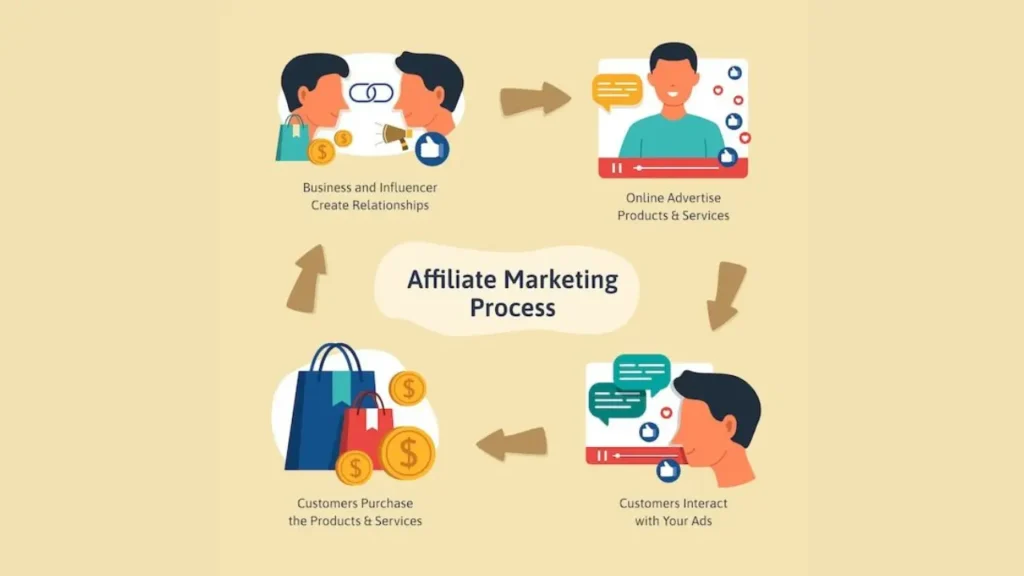
- Harsh Agrawal – ShoutMeLoud
Why He’s Famous:
- One of India’s top affiliate marketers.
- Teaches blogging, SEO, and affiliate marketing through his website.
- Makes money from programs like Bluehost, Hostinger, and SEMrush.
💡 Lesson: Blogging + SEO can still be a major money-maker in 2025.
- Matthew Woodward – SEO & Affiliate Marketing Expert
Why He’s Famous:
- Started as an SEO blogger, then mastered affiliate marketing.
- Shares in-depth case studies on how he earns money online.
- Focuses on SEO tools, web hosting, and digital marketing software.
💡 Lesson: Educating your audience and showing proof of success builds trust.
- Jason Stone – Millionaire Mentor (Instagram)
Why He’s Famous:
- One of the earliest Instagram affiliate marketers.
- Grew Millionaire Mentor to 10M+ followers by leveraging motivational content.
- Makes money promoting finance, self-development, and e-commerce tools.
💡 Lesson: Social media can be a goldmine for affiliate marketing.
9. Neil Patel – SEO & Digital Marketing Guru
Why He’s Famous:
- Co-founder of Ubersuggest, Crazy Egg, and KISSmetrics.
- Uses his blog and YouTube to drive traffic and promote high-ticket affiliate products.
- Recommends tools like Bluehost, SEMrush, and HubSpot.
💡 Lesson: SEO + content marketing can drive long-term affiliate success.
10. Spencer Haws – Niche Pursuits
Why He’s Famous:
- Specializes in niche websites and passive income strategies.
- Built and sold multiple successful affiliate sites.
- Created Link Whisper (an SEO tool for internal linking).
💡 Lesson: Building multiple small niche sites can generate multiple income streams.
11. Douglas Karr – Marketing Tech Blog
Why He’s Famous:
- Focuses on promoting B2B marketing software.
- Uses in-depth reviews and case studies to drive affiliate sales.
- Specializes in email marketing and automation tools.
💡 Lesson: High-ticket SaaS affiliate programs can be extremely profitable.
12. Charles Ngo – Super Affiliate Marketer
Why He’s Famous:
- One of the top paid traffic affiliate marketers.
- Uses Facebook Ads, Google Ads, and native ads to generate sales.
- Shares advanced strategies on affiliate funnels and landing pages.
💡 Lesson: Paid ads + affiliate marketing can scale earnings quickly.
These affiliate marketers have mastered blogging, SEO, email marketing, and social media to make millions in commissions. Whether you want to start with a blog, YouTube, or Instagram, affiliate marketing is still one of the best online business models.

13. Ian Fernando – Affiliate & E-commerce Expert
Why He’s Famous:
- Specializes in CPA (Cost-Per-Action) marketing.
- Uses paid traffic methods like PPV, push ads, and mobile ads.
- Runs a blog sharing insights into performance-based affiliate marketing.
💡 Lesson: Affiliate marketing isn’t just about blogging—paid traffic works too!
14. Syed Balkhi – Founder of WPBeginner
Why He’s Famous:
- Built WPBeginner, the biggest WordPress resource site.
- Promotes hosting, themes, and plugins as an affiliate.
- Uses his audience of millions to drive affiliate sales.
💡 Lesson: Creating a helpful resource site can generate long-term affiliate commissions.
General FAQs
1. What is affiliate marketing?
Affiliate marketing is a performance-based marketing strategy where affiliates earn a commission by promoting other people’s or companies’ products using unique tracking links.
2. How does affiliate marketing work?
It works in four steps:
- You join an affiliate program.
- You get a unique affiliate link.
- You promote products using the link.
- You earn a commission when someone makes a purchase through your link.
3. How much money can I make with affiliate marketing?
Earnings vary depending on your niche, traffic, and marketing strategy. Some affiliates make a few dollars a month, while others generate six or seven figures annually.
4. Do I need a website for affiliate marketing?
No, but having a website helps. You can also promote affiliate links on social media, YouTube, email newsletters, or even through paid ads.
5. Is affiliate marketing legal?
Yes, but you must disclose your affiliate relationships. For example, the FTC (Federal Trade Commission) requires you to inform your audience that you may earn a commission from recommended products.
Affiliate Programs & Platforms
6. What are the best affiliate programs to join?
Some of the top affiliate programs include:
- Amazon Associates – Great for beginners
- ClickBank – Digital products with high commissions
- ShareASale – Large variety of brands and products
- CJ Affiliate (Commission Junction) – Established network with high-paying programs
- Rakuten Advertising – Ideal for international brands
- PartnerStack – B2B software and SaaS affiliate programs
7. What is the highest-paying affiliate niche?
High-paying niches include:
- Finance (credit cards, investing, loans)
- SaaS (software-as-a-service)
- Health & wellness (supplements, fitness)
- Web hosting & domain services
- Online courses & education
8. Can I do affiliate marketing on social media?
Yes! Platforms like Instagram, YouTube, TikTok, and Twitter (X) are great for affiliate marketing. Just make sure to follow the platform’s guidelines for sharing affiliate links.
Strategy & Growth FAQs
9. How do I promote affiliate products?
You can promote them by:
- Writing blog reviews or comparisons
- Creating YouTube videos or TikToks
- Using email marketing
- Running paid ads (Google, Facebook, TikTok)
- Sharing on social media (Instagram, Twitter, Pinterest)
Conclusion
Affiliate marketing is a lucrative and accessible way to earn passive income online. By choosing the right niche, creating high-quality content, driving targeted traffic, and optimizing performance, affiliates can achieve long-term success. As digital marketing continues to evolve, staying updated on trends and best practices will help affiliates remain competitive.
Check out more blogs.
Also follow us on Instagram to get more updates.
